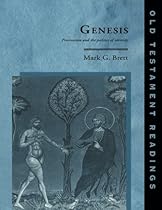Genesis: Procreation and the Politics of Identity (Old Testament Readings)

| Author | : | |
| Rating | : | 4.34 (559 Votes) |
| Asin | : | 0415141508 |
| Format Type | : | paperback |
| Number of Pages | : | 188 Pages |
| Publish Date | : | 2016-10-02 |
| Language | : | English |
DESCRIPTION:
Combining insights from social and literary theory as well as traditional historical studies, Mark Brett argues that the first book of the Bible can be read as resistance literature.Placing the theological text firmly within its socio-political context, he shows that the editors of Genesis were directly engaged with contemporary issues, especially the nature of an authentic community, and that the book was designed to undermine the ethnocentism of the imperial governors of the Persian period (fifth century BCE).
He is the editor of Ethnicity and the Bible (1996) and the author of Biblical Criticism in Crisis (1991). Brett is Professor of Old Testament at Whitley College, Melbourne. Mark G.
"Intentional Hybridity" according to Jordanite. Mark Brett argues that Genesis, in the form we have received it, was formed during the period of the Persian occupancy. The argument put forth is that the authors/editors deliberately structured the narrative with an 'intentional hybridity'. That is to say that the authors structured the narratives of Genesis in order to critique the dominant cultural ideologies of that day (found primarily in Ezra and Nehemiah) by placing the dominant ideologies in ambiguous
"a meaningful dialogue that illuminates the social function of the final form of Genesis."-Religious Studies Review " the biblical material is rigorously analyzed and the thesis carefully argued, with honest attention given to interpretations that vary from the author's it will capture the imagination of those interested in literary approaches."-Dianne Bergant, "The Bible Today
